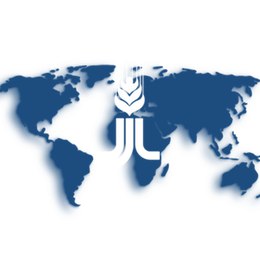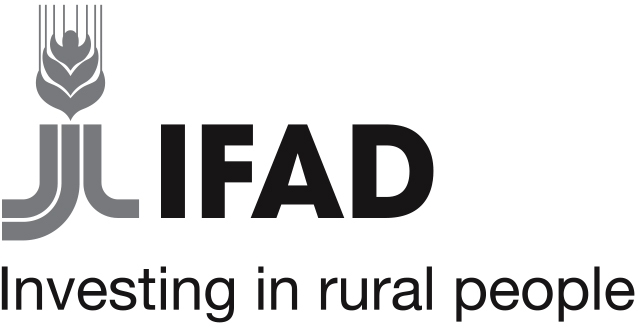Flexi Biogas
"I am very happy with the biogas, it is very easy to use and it saves me time as I don't need to collect wood anymore."
Marie Goreti Twagirumukisa, farmer in RwandaBACKGROUND
Off-grid communities in Africa burn wood as a primary source of energy, but this has negative implications for both health and environment. Time spent finding wood could otherwise be used more profitably.
Flexi Biogas is a portable technology for harvesting combustible gas from everyday biomass like kitchen waste and manure.
WHAT’S INVOLVED
Sustainable energy sources
Methane from decomposing waste can be used as fuel in place of wood, helping to reduce deforestation. The by-product is a compost which can be used to fertilize crops.
Better quality of life for women and children
Using biogas a cooking fuel means less risk of respiratory ailments caused by inhaling woodsmoke in enclosed kitchens. Children have more time for studying and play as there is no need to spend time searching for wood.
EXPLORE THIS SOLUTION
The Flexi Biogas project can offer:
- a chance to invest in a proven, low-cost, portable energy source for rural communities
- an alternative to permanent biogas production chambers which need costly installation

Countries involved
Cambodia, India, Kenya, Mali, Rwanda, Sao Tome and Principe, Swaziland, Vietnam
Project partners
Department of International Development (UK), Biogas International, Ministry of Agriculture and Animal Resources, Kigali, Rwanda
Project dates
2011 - Present
Share this solution
Bookmark this solution
BookmarkShow Full Solution
Summary
The use of biogas for cooking and lighting represents an economic and environmentally viable solution to rural energy challenges. It is especially useful in marginalized areas where conventional energy sources like electricity and fossil fuel are generally inaccessible and costly. Flexi Biogas is a portable biogas system developed in 2011 by the Kenyan small company Biogas International (BIL) and supported by an IFAD-funded project. This system has helped rural communities in Kenya, Sao Tome, Rwanda and India to start using innovative energy sources that have improved their health and daily life.
Challenge
In Africa, more than 85 per cent of rural communities rely on traditional fuels, such as firewood and charcoal, for cooking and lighting. Women and children walk long distances every day to collect firewood, at the expense of their income-generating and leisure activities. Additionally, the smoke inhaled from the combustion of firewood has huge negative health implications in terms of chronic respiratory diseases and eye infections.
Biogas International (BIL) is a small private sector enterprise based in Nairobi. IFAD has piloted its Flexi Biogas product as an integrated waste management and renewable energy technology solution. However, the company is too small to attract real capital investment, and too big for Monetary Financial Institutions to provide funds. Like any other young company, BIL faces challenges in obtaining loans for new products without business history or track-record. While demand for this technology is growing, BIL faces great challenges meeting the market's requirements.
Solution
The Flexi Biogas system consists of a plastic digester bag housed in a greenhouse tunnel. The tunnel acts like an insulated jacket, trapping heat and keeping the temperature optimal. The combination of the tunnel and the plastic bag increases the volume of gas production and reduces the time it takes for organic material to break down, ensuring a high rate of fermentation and gas production.
The UK's Department of International Development funded an Initiative for Mainstreaming Innovation (IMI) project, where proven renewable energy technologies (RETs) such as Flexi Biogas were tested and scaled up with the objective of simultaneously assessing the market infrastructure. RETs can benefit from appropriate policy frameworks and financial incentives which can promote them beyond the pilot phase through a market-driven approach.
The project aimed to find ways to engage other capable private sector entities to promote environmentally-friendly goods and services, and to identify financial mechanisms which could support BIL to meet the market demand by building its capacity. IMI aims to support portable technologies for producing biogas and test them with smallholder dairy farmers to gather data and lessons to be shared with investors, decision makers and farmers. The test results help them make an informed decision on whether to adopt these innovations.
Results
Through the IMI project:
- 10 Flexi Biogas systems were installed in smallholder dairy farms in Nakuru (Kenya) within IFAD’s funded project, Smallholder Dairy Commercialization Project (SDCP)
- An additional 10 systems were piloted in Kirehe (Rwanda) within another IFAD project, the Kirehe Community Based Watershed Management Programme (KWAMP)
- The solution is currently being implemented in Cambodia, Vietnam, Mali and Swaziland
Lessons learned and potential for replication
- IFAD has promoted Flexi Biogas through its engagement with South-South Triangular Cooperation (SSTC) initiatives and through linking BIL with research institutes to validate the Flexi Biogas technology (i.e. With the IIT-Delhi).
- Several SSTC initiatives promoted by IFAD have helped to influence policy dialogue on rural energy in developing countries.
- Potential environmental risks should be considered in the long run in case of larger scale introduction of Flexi Biogas systems, for example, heavy use of plastic and inconsistent reduction of firewood consumption in rural areas.
Next steps
There is a plan to install additional 300 Flexi Biogas digesters as part of the scaling up phase (through the One Cow per Every Family Programme) in Rwanda.
Solution Video
Solution Image
Solution Document Downloads
Solution Additional Resources
Overview of Rwanda's National Domestic Biogas ProgrammeLast update: 09/08/2018


